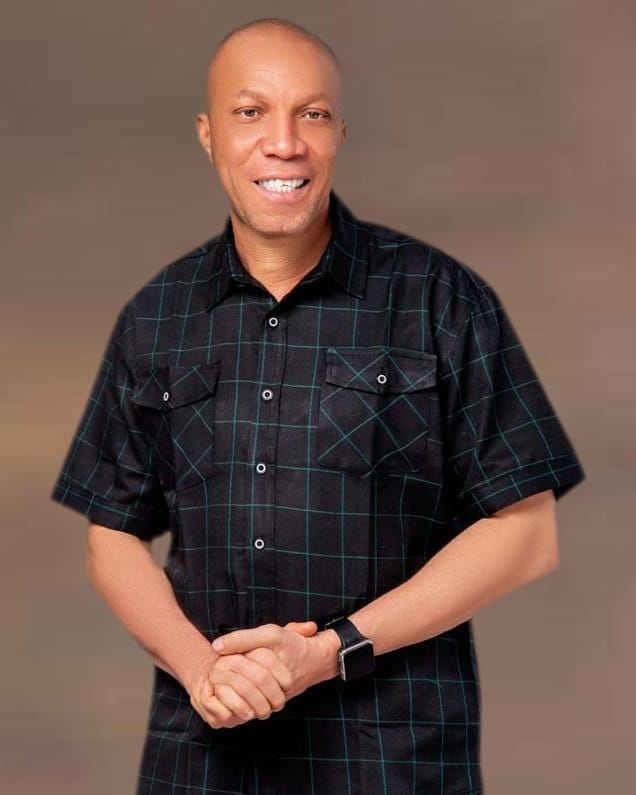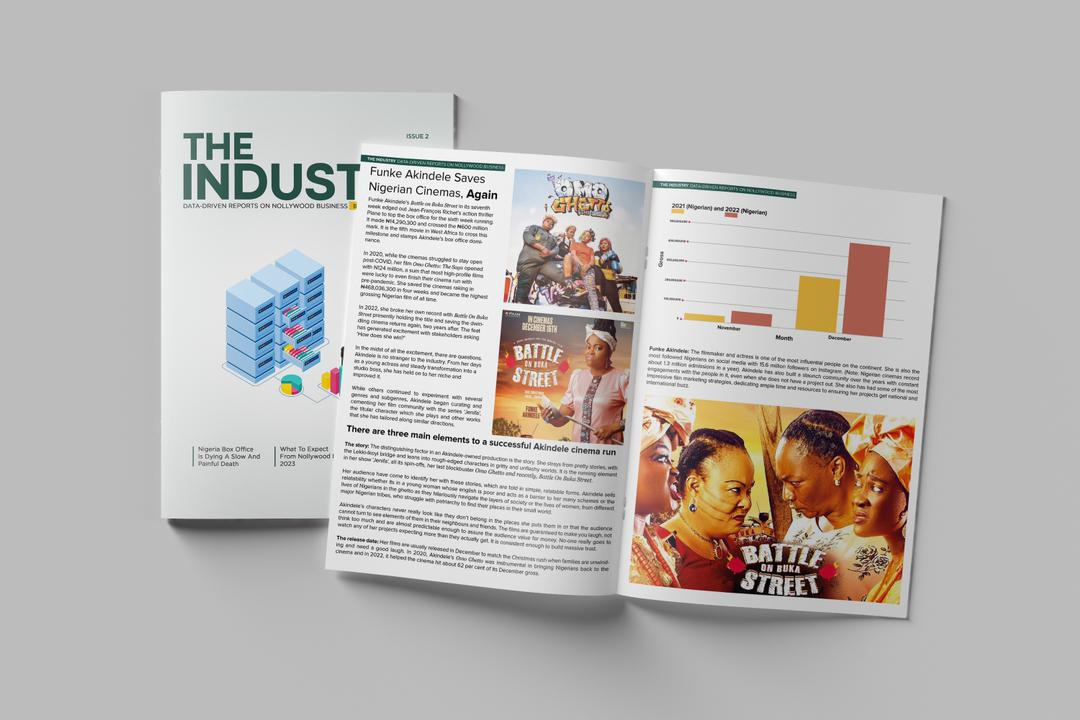Stanley Okorie: Meet The Nollywood Veteran Behind Viral "Billionaire" Song
The veteran's viral hit 'Billionaire' was released 7 years ago, but it's making him popular among Nigeria's GenZ's today.
It is everywhere you go, from Whatsapp to Instagram to Facebook. TikTok is probably the chief elevator, but you undoubtedly have heard the song now. While it is more popular among the ladies for obvious reasons, Stanley Okorie's Billionaire (Onye ji cash) fits into the everyday mood of everybody. It is a song that encapsulates Nigeria’s praise-singing culture and our admiration for money and those possessing an awful amount of it.
For three months, I have been pursuing an interview with Mr. Okorie; he is old Nollywood’s finest when it comes to soundtracks, and I wanted to tell his story. But he is not an easy man to find. With Billionaire buzzing on Tiktok this year, I had to triple my fight for an interview with him, and I got it.
“The world has become a community of people in need of one thing: cash,” Okorie says about the song’s relevance today when we finally speak. “And people would trade a billionaire [for] a lover boy. The song is saying what is in a lot of people's minds. A billionaire is what every girl wants to have and what every man wants to be.”
Okorie has been in the business of composing songs for Nollywood for nineteen years. His breakout song, Karishika (Queen of Demons), a slow rock ballad, came from the 1996 horror movie of the same title. Billionaire was recorded seven years ago for Don Single Ndubuisi’s Return of the Billionaires, and while it made waves back then, “it's heartwarming to see a song you recorded a long time ago buzzing now,” the singer says on the longevity of his song. “In the past weeks, I've received calls for collaborations, projects and the like.”
When I asked Okorie how he gets inspiration for his hits soundtracks, he says they come in three significant ways. The first: it just happens. He sleeps and wakes up in the morning, and the song is there. The words might come first and the melody is absent; sometimes, the melody is there and the words are not. The second way involves him writing his way to inspiration. Get to the computer and to the keyboard and start working out the notes and tunes.
The third is intriguing. He picks from everyday activities, stories and events. But there are days when nothing comes, and the music maestro struggles. “Sometimes, I enter panic mode when a movie producer wants a song ASAP, and nothing is forthcoming,” he narrates. “At that point, I put money in my pocket, pick up my phone, board a Keke and tell the Keke guy to pick passengers. I'll be in the Keke for an hour or two with no destination in mind. [During these hours], somebody will say one thing or two that sticks, and right there is my song. The Billionaire song was actually from a conversation I heard two people make.”
Okorie's time with Nollywood was memorable but tasking. "Was" because he has made a not-so-deep retirement from the industry. “I come and go now. I still record soundtracks for people or those who can pay. The only problem I had with recording soundtracks for Nollywood was time. Sometimes, I stay in the studio for two weeks straight without reaching home. My wife would have to bring food to the studio.”
Nollywood has evolved from what it was during his heydays. Despite that, he feels strongly that his style can work in new Nollywood because music is elastic. “The style may differ, but the underlying emotions are still what it is — of hate, pain, lust, greed, love.”
"My only problem with Nollywood now is that we're not telling our own historical, cultural and African stories. In our time, we started with contemporary [stories] and later got into epics, but now, you find everybody trying to wear a false accent and be like the White men. It pisses me off and has made me not watch Nollywood as I did before," Okories shares his observation on the new Nollywood.
I pressed further on that aspect as these historical stories are now mostly being told in the Yoruba perspective by Yoruba filmmakers, and the Igbo’s are doing close to nothing to make theirs prevalent. “Nollywood is Igbo,” he responds with a laugh, “The Igbo man is a businessman and is into business for profit, [he] is not there to portray any culture. He just wants to make his money since the government and country cannot do anything much for him. He has no ethnic or artistic faithfulness, and sadly, it's that thing that most times propels you that destroys you.”
With so much achievement in Nollywood, you wonder, “where has Stanley Okorie been and what has he been up to?” He says that he has his hands in many things but is restructuring. “I made music for 19 years back-to-back,” he says. “Recorded almost 11,000 songs, morning and night. All these songs can be found on Audiomack, Spotify, YouTube music. So, I'm taking time to restructure, and it's a good thing that the Billionaire song has reminded us that I'm still here.”
His restructuring is part of why I could only land him now — the man has been busy. But I pressed for this conversation because he is part of Nollywood’s history. For over two decades, Okorie was the leading voice and music producer on Nollywood’s biggest films. His songs have been featured as soundtracks in over five thousand Nollywood films. This year, he is returning with new projects, including a musical and a new collection of the best of Stanley Okorie, featuring new songs and re-mixing of old songs. He will be releasing them on all digital streaming platforms.
This story was originally published in the second edition of Inside Nollywood’s The Industry.






An interesting conversation. Answers some questions we have about Nollywood. The delivery is engaging, I kept reading.👏🏼
well done and thanks for reporting on this.